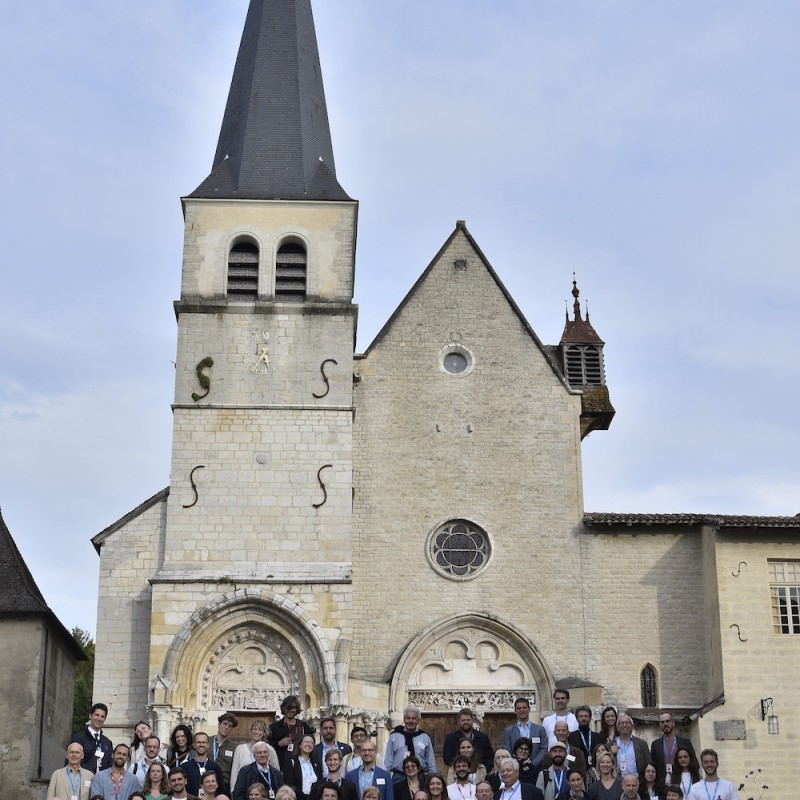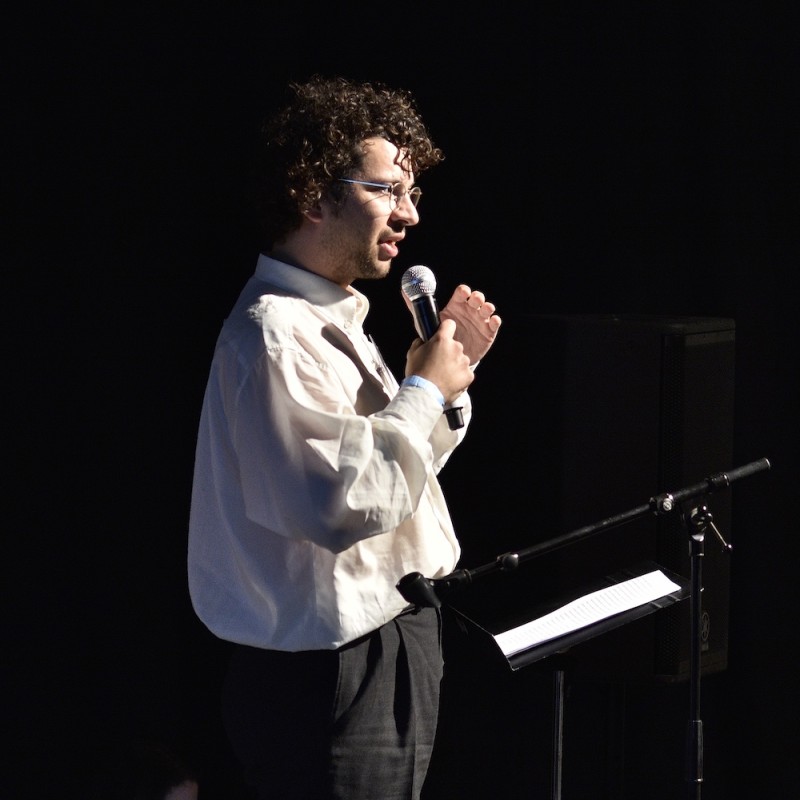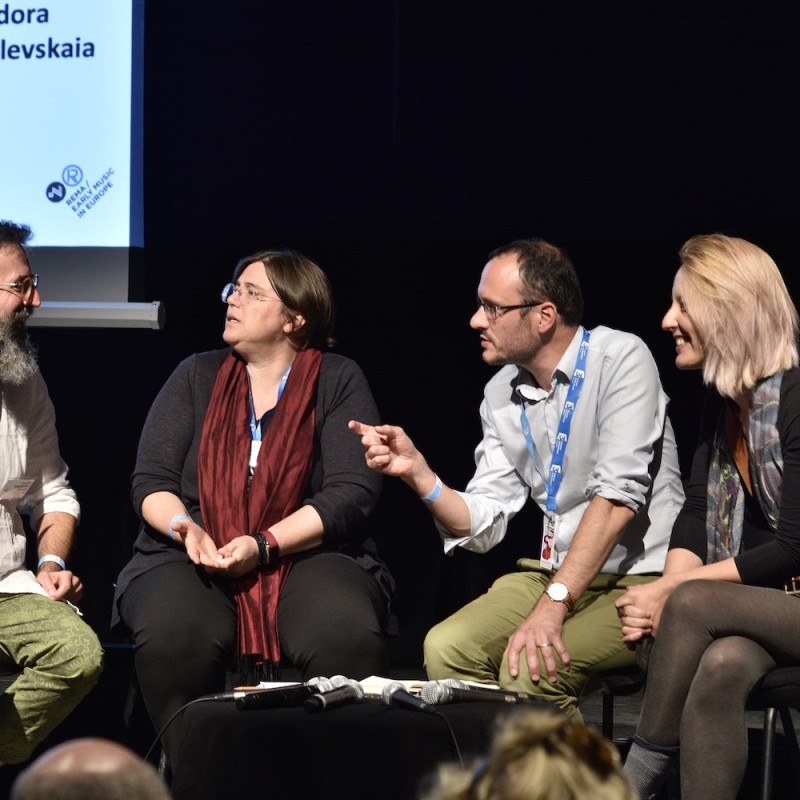Imagine the future - EEE+ Assembly and REMA meeting
Dans le cadre d’EEEMERGING+, le CCR d’Ambronay a organisé avec le Réseau européen de musiques anciennes (REMA) la EEE+ Assembly, premières rencontres “post-COVID” des membres du Réseau. Je me suis chargé avec Héléna de Winter et l’équipe du REMA de la programmation et de la mise-en-place des rencontres.
EEEmerging+ Assembly & REMA Conference - October 1st and 2nd, 2021
IMAGINE THE FUTURE
Conference, round tables and “fish bowl”
Report by Laurent Bury
For the last weekend of the Festival d’Ambronay, all the ensembles supported by the EEEmerging+ programme were invited to perform for evening concerts in the Abbey. During the day, they gathered in the town’s multi-purpose hall for discussions varying from the more formal (a conference by a philosopher) to a more informal form of talks, organised as traditional round tables with three guests and a moderator, or a more experimental “fish bowl” in which everyone could take part, provided there were never more than four people debating at one given moment.
While the world of Early Music is generally perceived as focused on the reconstruction of the past, it is also very much a thing of the present day, a living ecosystem, which also has to be sustainable on the local and global level in order to have a future.
As shown by keynote speaker Errol Boon, a researcher and lecturer at the University of Arts Utrecht, while we now live in the global village promised by the internationalisation of cultural values, we are also confronted with the challenges of “pseudo cosmopolitanism” when all cultural institutions seem to offer the same kind of fare without any local specificity, to a very limited audience while the majority of the population is undergoing globalisation rather than actually taking part in it. Hence a “disenchanted globalisation”, where infinite growth has been replaced by an ecological crisis, and where international solidarity has been supplanted by protectionism and populism. The COVID crisis might therefore be a turning point allowing us to rethink self-evident ideas.
A first round table discussed the scope of the Early Music ecosystem, and more specifically on modes of cooperating between Early Music shareholders, by gathering representatives of its three main dimensions: a researcher, musicologist Theodora Psychoyou, a performer, Anna Danilevskaia, founder of the Sollazzo ensemble, and a concert promoter, Vincent Morel, Artistic director of Festival Bach en Combrailles. Even though musicians tend to be given centre stage, they obviously depend on the two other groups of actors, within a relationship in which everyone stands to benefit even though priorities and temporalities may vary.
A second round table was devoted to the use of local projects to favour global development. Unfortunately, local authorities do not always recognize the vital need for musicians to travel in order to reach a wider audience, and refuse to fund any concert beyond the strictly local area. On the other hand, in a time when international travelling can be stigmatised as damaging for the environment, new solutions could be devised to avoid some forms of excess and help artists find a temporary local grounding. This conversation gathered Jo Buckley, director of the Scottish Dunedin Consort, Jorge Losana, a member of the Cantoria ensemble and director of the ECOS festival ECOS in Southern Spain, and Artur Malke, programmer of the Gliwice festival in Poland.
The “fish bowl” format included three discussions in relation with Early Music as a living culture. The first one was about inclusive and sustainable careers. More than anything else, young ensembles need time in order to develop through trial and error: residencies therefore appear as a good way for them to build a strong relation with an institution and with an audience.
The second discussion was about sustainable programming. Creativity should be introduced at all levels, not only by musicians, but also by agents and concert promoters, who can do better than just offer “consumer products” to their audiences. The concert experience is to be reinvented, sometimes in unusual venues, in order to awake curiosity and attract a new local public.
The third discussion focused on audience involvement. To conjure more active, more engaged audiences, pedagogy may be a solution, and some performers regularly try to provide explanations and keys to their concerts: people become more active listeners once they know more precisely what to expect. Communication and information are obviously important, but musicians should never lose sight of the fact that their first duty to society is to share their passion and provide a stunning experience.
Programme des Rencontres du REMA et de la EEE Assembly






